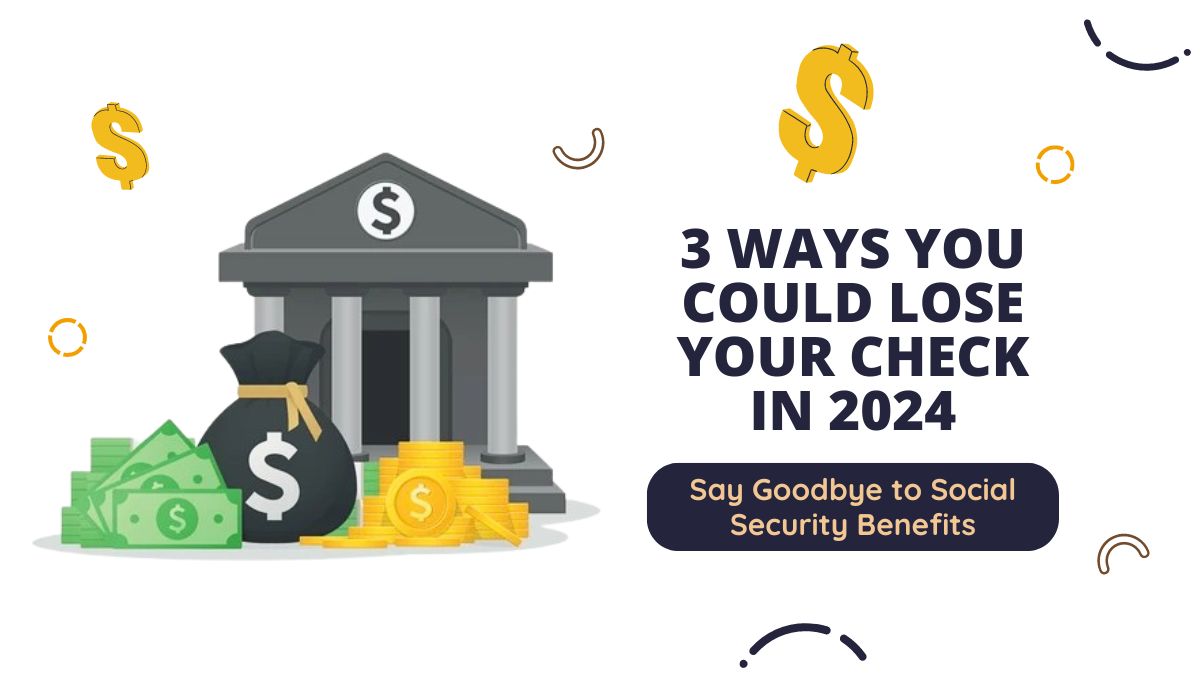Social Security benefits are a crucial source of income for many Americans, especially as they age or face disabilities. While most people expect to receive these benefits once they become eligible, it’s essential to know that various circumstances can lead to a reduction or even a complete loss of these benefits. Some of these changes might be out of your control, but knowing the potential pitfalls can help you avoid them.
The Social Security Administration (SSA) provides different types of benefits, including retirement benefits, Social Security Disability Insurance (SSDI), and Supplemental Security Income (SSI) for those with limited income and resources. To safeguard your benefits, it’s vital to know what could affect your eligibility or the amount you receive.
Earnings
One of the most common ways to lose Social Security benefits is by exceeding the earnings limits set by the SSA. While you can collect Social Security while working, earning above a certain threshold can reduce your benefits.
For those receiving SSI, the earnings limit is generally $1,971 per month for individuals, with a higher limit for couples. Earning more than this can lead to a reduction in benefits. Specifically, for every $2 earned over the limit, $1 is deducted from your SSI payment. This applies to all forms of employment, and any changes in your income must be reported to the SSA immediately.
SSDI beneficiaries, however, have more flexibility. If you start working while receiving SSDI, you get a “work test period” of up to nine months. During this time, you can earn more than the usual limit without losing benefits. For 2024, earning more than $1,110 in any month counts toward this nine-month period. After this, a 36-month “extended period of eligibility” (EPE) begins, during which exceeding the EPE limit – set at $1,550 per month in 2024, or $2,590 if you’re blind – results in no SSDI benefits for that month.
Resources
SSI eligibility is not only based on income but also on your resources. The SSA defines resources as anything you own that can be converted to cash for food or shelter. This includes cash, bank accounts, stocks, bonds, and personal property. To qualify for SSI, your resources must not exceed $2,000 for individuals or $3,000 for couples.
If your resources surpass these limits, you must spend down the excess before you can qualify again. It’s worth noting that around 70,000 beneficiaries lose their SSI benefits each year due to exceeding the resource limit. While there have been discussions about increasing these limits, no changes have been made yet.
Divorce
Divorce can have a significant impact on your Social Security benefits. You may lose access to benefits based on your ex-spouse’s earnings if you weren’t married for at least 10 years or if you remarry. However, if your new marriage ends, you could regain eligibility for benefits based on your ex-spouse’s earnings. Additionally, if the benefits you qualify for based on your own earnings are higher than those of your ex-spouse, you will receive the higher amount.
Incarceration
Incarceration is another major factor that can cause Social Security benefits to be suspended or terminated. If you are incarcerated for more than 30 days, your Social Security and SSI benefits will be suspended. However, SSDI benefits can be reinstated the month after your release. It’s important to note that while your benefits may be suspended, your spouse or children might continue to receive payments if they are eligible. For SSI, benefits are suspended during incarceration and are not reinstated until you are released. If you’re incarcerated for more than 12 months, your SSI benefits will be terminated, requiring you to reapply upon release.
Social Security benefits are a lifeline for many, and knowing the factors that could jeopardize them is crucial. Whether it’s exceeding earnings limits, holding too many resources, divorce, or incarceration, being aware of these pitfalls can help you protect your benefits.
FAQs
Can earning too much money affect my Social Security benefits?
Yes, exceeding SSA earnings limits can reduce or suspend your benefits.
What happens to SSI if I have too many resources?
If your resources exceed limits, SSI benefits may be reduced or stopped.
Does divorce always affect my Social Security benefits?
Divorce can affect benefits if you weren’t married for 10 years or if you remarry.
Are Social Security benefits suspended if I’m incarcerated?
Yes, benefits are suspended after 30 days of incarceration but can be reinstated after release.
What is the EPE period in SSDI?
The EPE is a 36-month period where earnings over the limit can reduce SSDI benefits.
















